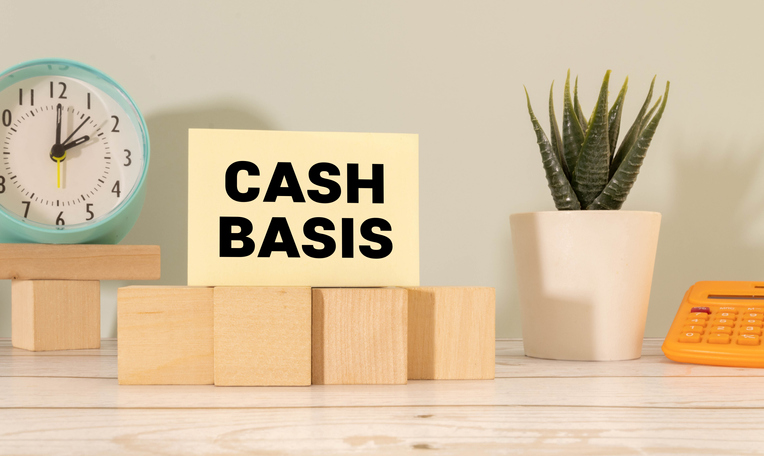Home / Latest News And Updates / Cash Basis: Are you ready for it to become the default?
26 Jan 2024
Beginning in the 2024/25 tax year, the cash basis will be the default way of reporting the taxable profits or losses of unincorporated businesses to HMRC. Accruals-based accounting will still be an option for these businesses, however, but they will have to opt-in, probably by marking a box on their self assessment tax return.
This article looks at what changes are going to be made and how it will impact accountants and tax professionals.
If you are an accountant in practice or industry and would like more information about becoming a 20:20 Innovation member, why not book a free 30-minute demo with our team today.

As well as making cash basis the default, the following changes will be made to the regime:
As the cash basis is only for unincorporated businesses, limited companies and LLPs cannot use it. The legislation also excludes certain types of unincorporated businesses, including partnerships that have a corporate partner, farmers with a current herd basis election and farmers and creative businesses with a profit averaging election.
It appears the Treasury sees cash basis as a key simplification measure. By making it the default and removing barriers to entry, more taxpayers are likely to use it and therefore benefit from a simpler reporting system. However, using the cash basis has its pros and cons and it won’t be suitable for everyone.
Its biggest drawback applies to larger or more sophisticated sole traders and partnerships, who rely on accruals-based accounts, prepared under Generally Accepted Accounting Practice (GAAP), to monitor the performance of their business. It’s fair to say that cash basis accounts do not necessarily show a true and fair view of the business’s position. Cash basis accounts show the results based on cash flows, give or take a few adjustments. For a true picture of how much profit a business has made, accruals accounting is the way forward.

Generally, the cash basis will be of most benefit to unrepresented businesses, in particular, those with fewer debtors, creditors and stocks. For those filling in their own tax returns, it’s certainly a simpler way of calculating the taxable profits of a business. That said, some of your smaller clients may benefit from using the cash basis. Fewer adjustments to profit will be required and, with the advent of Making Tax Digital for Income Tax in 2026, quarterly tax estimates will be much more reliable.
Accountants should look at their client base to see who may benefit from using the cash basis and plan their client communications accordingly.
The next step is to get to grips with how the cash basis works. Its premise is straightforward (cash in less cash out), but a few adjustments will still be required. Possibly the most time-consuming adjustments will be necessitated by switching from accruals to cash accounting, in which case debtors, creditors, stocks and capital equipment will require adjusting.

Our webinar ‘Cash Basis for Sole Traders and Partnerships – Advising on the New Rules from April 2024’ will discuss the advantages and disadvantages of the cash basis in more detail, giving some helpful tips on identifying clients who may benefit from using it. The notes will give detail on how to apply the cash basis rules and also give guidance on the transitional adjustments required when switching to or from the cash basis.
If you would like more information about joining 20:20 Innovation why not book a free 30-minute demo with our team today or call us on +44 (0) 121 314 2020.

26 Jan 2024
This article looks at the recent changes made by Microsoft and how Copilot has numerous applications for accou...

11 Jan 2024
If you're an accountant who values professional development, formal networking groups and training events are ...

18 Dec 2023
Accountants operate in a changing industry. To explore the key dates for accountants in 2024 and download our ...